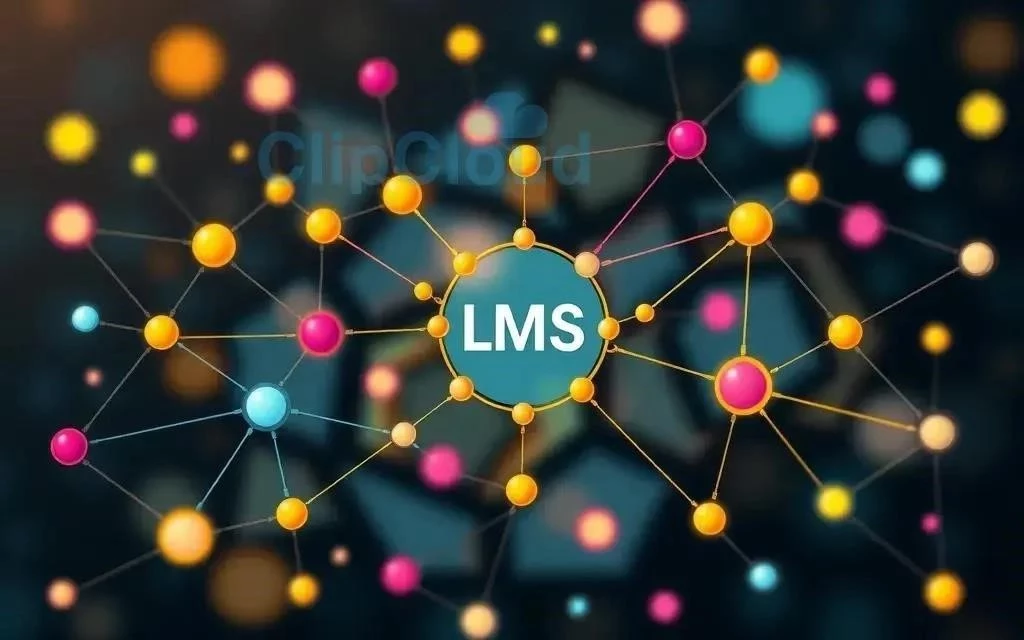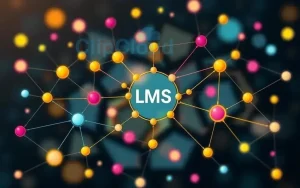Understanding the Learning Management System (LMS): A Comprehensive Guide
Discover the power of a Learning Management System (LMS) and revolutionize your training! Streamline learning, track progress, and boost engagement. Start your journey today!

In today’s rapidly evolving digital landscape‚ education and training are no longer confined to traditional classroom settings. Organizations and individuals alike are increasingly turning to online platforms to facilitate learning and development. At the heart of this shift lies the Learning Management System (LMS)‚ a powerful tool that streamlines and enhances the entire learning process. This article delves into the definition of an LMS‚ explores its key features‚ and highlights its numerous benefits for both educators and learners.
Defining the Learning Management System (LMS)
A Learning Management System (LMS) is a software application designed to administer‚ document‚ track‚ report‚ and deliver educational courses‚ training programs‚ or learning and development programs. It acts as a central hub for all learning-related activities‚ providing a structured environment for both instructors and learners.
Think of it as a virtual classroom‚ complete with tools for content delivery‚ assessment‚ communication‚ and progress tracking. An LMS allows educators to create and deliver engaging learning experiences‚ while providing learners with a convenient and accessible platform to access resources and interact with their peers.
Key Features of a Learning Management System
- Course Management: Creation‚ organization‚ and delivery of course content.
- User Management: Enrollment‚ authentication‚ and role-based access control.
- Content Delivery: Uploading and sharing various types of learning materials (videos‚ documents‚ presentations).
- Assessment Tools: Quizzes‚ assignments‚ and surveys to evaluate learner understanding.
- Communication Tools: Forums‚ chat rooms‚ and messaging systems to facilitate interaction.
- Reporting and Analytics: Tracking learner progress‚ generating reports‚ and identifying areas for improvement.
- Mobile Learning: Accessing learning materials on mobile devices.
Benefits of Implementing a Learning Management System
The adoption of an LMS offers a multitude of advantages for organizations and educational institutions:
- Centralized Learning: Provides a single platform for all learning resources and activities.
- Improved Accessibility: Enables learners to access materials anytime‚ anywhere;
- Enhanced Collaboration: Fosters communication and interaction among learners and instructors.
- Cost Savings: Reduces the need for physical classrooms and printed materials.
- Increased Efficiency: Automates administrative tasks and streamlines the learning process.
- Personalized Learning: Allows for customized learning paths based on individual needs.
- Better Tracking and Reporting: Provides insights into learner progress and program effectiveness.
Types of Learning Management Systems
LMS solutions come in various forms‚ each catering to different needs and requirements:
- Cloud-Based LMS: Hosted on the vendor’s servers‚ offering scalability and accessibility.
- On-Premise LMS: Installed and managed on the organization’s own servers‚ providing greater control over data.
- Open-Source LMS: Free and customizable software‚ requiring technical expertise for implementation.
- Commercial LMS: Proprietary software with a subscription fee‚ offering features and support.
Choosing the Right Learning Management System: Factors to Consider
Selecting the appropriate LMS for your organization or institution requires careful consideration of several factors:
- Your specific needs and requirements.
- Your budget.
- The size and complexity of your organization.
- The technical expertise of your team.
- The features and functionality offered by the LMS.
- The vendor’s reputation and support.
Integrating an LMS with Other Systems
Modern LMS solutions often offer seamless integration with other systems‚ such as:
- Human Resource Information Systems (HRIS)
- Customer Relationship Management (CRM) systems
- Content Management Systems (CMS)
- Video conferencing platforms
This integration allows for a more streamlined and efficient learning experience‚ as well as improved data management and reporting.
The Future of Learning Management Systems
The LMS landscape is constantly evolving‚ with new technologies and trends shaping its future; Some key trends include:
- Artificial Intelligence (AI): Personalized learning experiences and automated tasks.
- Gamification: Engaging learners through game-like elements.
- Microlearning: Delivering learning content in small‚ digestible chunks.
- Mobile Learning: Optimizing LMS platforms for mobile devices.
- Virtual and Augmented Reality (VR/AR): Immersive learning experiences.
Factoid: The global learning management system market is projected to reach over $40 billion by 2027‚ driven by the increasing demand for online learning and the growing adoption of cloud-based solutions.
FAQ: Frequently Asked Questions About Learning Management Systems
What is the difference between an LMS and an LCMS?
An LMS (Learning Management System) manages learners and courses‚ while an LCMS (Learning Content Management System) focuses on creating‚ storing‚ and managing learning content. Some systems combine both functionalities.
How much does an LMS cost?
The cost of an LMS varies widely depending on the type of system‚ the features offered‚ the number of users‚ and the vendor. Prices can range from free (for open-source solutions) to thousands of dollars per year.
Is an LMS suitable for all types of training?
While an LMS is a versatile tool‚ it may not be suitable for all types of training. Hands-on training or highly specialized skills may require alternative approaches.
Can I integrate an LMS with my existing website?
Yes‚ many LMS platforms offer integration options with existing websites‚ allowing you to seamlessly embed learning content into your site.
What support options are available for LMS users?
Most LMS vendors offer various support options‚ including online documentation‚ tutorials‚ email support‚ and phone support. The level of support may vary depending on the subscription plan.
Ensuring LMS Success: Best Practices
So‚ you’ve chosen and implemented your LMS – now what? Are you simply going to let it sit there‚ hoping for the best? Shouldn’t you actively work towards maximizing its potential?
How do you drive user adoption of your LMS?
Is clear communication crucial? Should you offer comprehensive training sessions for both instructors and learners? What about highlighting the benefits and addressing any concerns users might have? Could gamification and incentives play a role in boosting engagement?
What strategies optimize your LMS content?
Are you ensuring your content is engaging‚ relevant‚ and accessible? Should you be breaking down complex topics into smaller‚ more manageable modules? What about incorporating multimedia elements like videos and interactive quizzes to enhance the learning experience? Are you regularly reviewing and updating your content to keep it fresh and accurate?
How do you measure the effectiveness of your LMS?
Are you tracking key metrics like course completion rates‚ learner engagement‚ and knowledge retention? Should you be gathering feedback from learners and instructors to identify areas for improvement? What about analyzing the impact of your LMS on business outcomes like employee performance and customer satisfaction? Are you using data-driven insights to make informed decisions about your learning strategies?
Can you truly personalize the learning experience within your LMS?
Are you leveraging adaptive learning technologies to tailor content to individual learner needs? Should you be offering personalized learning paths based on skill assessments and career goals? What about providing opportunities for learners to connect with mentors or peers with similar interests? Can you create a truly individualized and engaging learning journey?
What about the ethical considerations of using an LMS?
Are you ensuring data privacy and security for your learners? Should you be providing accessible learning materials for users with disabilities? What about promoting inclusivity and avoiding bias in your content? Are you using your LMS responsibly and ethically?
How do you stay ahead of the curve with your LMS?
Are you continuously monitoring emerging trends in learning and technology? Should you be exploring new features and functionalities offered by your LMS vendor? What about investing in professional development for your learning and development team? Can you ensure your LMS remains a valuable and effective tool for years to come?
Factoid: Integrating social learning features into an LMS can increase learner engagement by up to 50%. But are you creating a supportive and collaborative learning environment?
What are the common pitfalls to avoid when using an LMS?
Are you neglecting to provide adequate training and support? Should you avoid overwhelming learners with too much content at once? What about failing to regularly update and maintain your LMS? Could neglecting these aspects render your LMS investment ineffective?
Is your LMS just a system or a vital part of your organizational strategy?
Should your LMS be aligned with your overall business goals and objectives? Are you treating it as a strategic investment rather than just a software solution? What about fostering a culture of continuous learning throughout your organization? Can an LMS truly transform your organization into a learning powerhouse?
Future-Proofing Your LMS: Staying Ahead of the Curve
The LMS landscape is ever-changing‚ demanding constant adaptation. But how can you ensure your LMS remains a valuable asset in the long run?
Are you actively monitoring emerging trends in learning technologies?
Should you be constantly researching new features‚ integrations‚ and methodologies that can enhance your LMS? What about attending industry conferences and webinars to stay informed about the latest innovations? Are you proactively seeking ways to improve your learning ecosystem?
Is your LMS adaptable to evolving learning needs?
Can your LMS easily accommodate different learning styles and preferences? Should it support a variety of content formats‚ from videos and podcasts to interactive simulations and virtual reality experiences? What about the ability to personalize learning paths based on individual learner needs and goals?
Are you leveraging data analytics to drive continuous improvement?
Are you tracking key performance indicators (KPIs) to measure the effectiveness of your LMS? Should you be analyzing learner engagement‚ completion rates‚ and knowledge retention to identify areas for optimization? What about using data-driven insights to inform your content development and instructional design strategies?
Are you fostering a culture of continuous learning and innovation?
Is your organization committed to providing ongoing professional development opportunities for its employees? Should you be encouraging experimentation with new learning technologies and methodologies? What about creating a collaborative environment where learners can share knowledge and best practices?
Is your LMS secure and compliant with industry regulations?
Are you taking the necessary precautions to protect sensitive learner data? Should you be implementing robust security measures to prevent unauthorized access and data breaches? What about ensuring your LMS complies with relevant privacy laws and regulations‚ such as GDPR and CCPA?
Are you prepared for the future of work?
Is your LMS equipped to support remote learning and distributed teams? Should it facilitate collaboration and communication among learners regardless of their location? What about providing access to on-demand learning resources that enable employees to upskill and reskill quickly?
Are you embracing artificial intelligence (AI) in your LMS?
Can AI personalize learning experiences and recommend relevant content based on individual learner profiles? Should it automate administrative tasks and provide real-time feedback to learners? What about using AI-powered chatbots to answer learner questions and provide support?
Are you integrating your LMS with other business systems?
Can your LMS seamlessly integrate with your HR system‚ CRM‚ and other enterprise applications? Should it streamline workflows and eliminate data silos? What about providing a unified view of employee learning and development across the organization?
Are you investing in the long-term success of your LMS?
Are you allocating sufficient resources to support the ongoing maintenance‚ upgrades‚ and enhancements of your LMS? Should you be partnering with a reputable LMS vendor that provides reliable support and ongoing innovation? What about ensuring your LMS remains a valuable asset that drives business results for years to come?
Ultimately‚ is your LMS a strategic investment that empowers your organization to thrive in the digital age?
Should your LMS be more than just a technology platform? What about an essential tool that enables your organization to attract‚ retain‚ and develop top talent? Are you ready to embrace the future of learning and unlock the full potential of your LMS?




